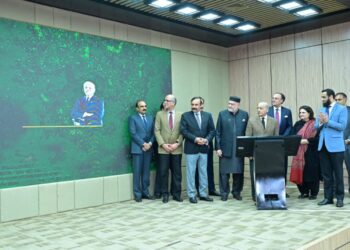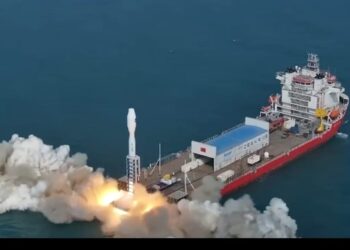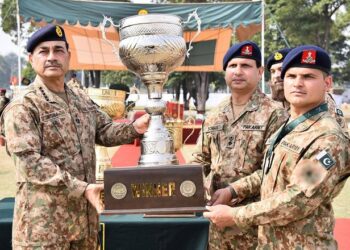Islamabad: Written submissions were submitted to the court by the Supreme Court Bar Association in the case related to the military trial of civilians.
A 7-member constitutional bench headed by Justice Aminuddin Khan heard the trial case of civilians in military courts, in which written submissions were submitted to the court by the Supreme Court Bar Association.
The written submissions submitted to the court by the Supreme Court Bar Association stated that civilians should not be tried in military courts. The provisions of the Army Act have been declared correct in various court decisions. The provisions of the Army Act cannot be declared unconstitutional.
Later, Hamid Khan, lawyer for the Lahore Bar Association and the Lahore High Court Bar Association, began his arguments and referred to the era of former Chief Justice Umar Ata Bandial, to which Justice Jamal Mandokhel said that we will not go back to the old story. The main question is whether a civilian can be tried in a military trial or not.
Lawyer Hamid Khan said that the Army Act was enacted in May 1952. When the Army Act was enacted, Pakistan had the Government of India Act. The first constitution in Pakistan was enacted in 1956. Fundamental rights were introduced for the first time in the first constitution. The first amendment to the Army Act 1952 was made in 1967. After the Tashkent Agreement, a political meeting was held in Lahore. The first conspiracy case was filed in the Rawalpindi conspiracy in 1951.
Justice Hassan Azhar Rizvi remarked that people like Faiz Ahmed Faiz were also nominated in the Rawalpindi conspiracy case.
Hamid Khan, continuing his arguments, said that the Rawalpindi Conspiracy Special Trial Act 1951 was introduced to try the accused. The aim of the Rawalpindi conspiracy was to impose a communist system in the country. The accused included civilians including General Akbar Khan. The decision was made to trial the Rawalpindi conspiracy under a special tribunal, not a military trial.
Justice Jamal Mandokhel asked whether the Army Act was in place in 1951, to which lawyer Hamid Khan replied that the Military Act of 1911 was applicable in Pakistan.
Justice Muhammad Ali Mazhar asked whether the Special Tribunal was formed only for the Pindi Conspiracy trial, to which lawyer Hamid Khan said that the point is that high-ranking civilians and non-civilians were involved in the Rawalpindi conspiracy. The trial of the accused in the Rawalpindi conspiracy was not a military trial, but a special tribunal.
The lawyer further stated in his arguments that the Military Court was first formed in 1953. When riots broke out in Lahore in 1953, martial law was imposed in the city limits. Military courts were formed to try the accused in the riots. Cases were filed against people like Maulana Abdul Sattar Niazi and Maulana Maududi. On this occasion, Justice Hassan Azhar Rizvi remarked that they had also received pardons later.

























